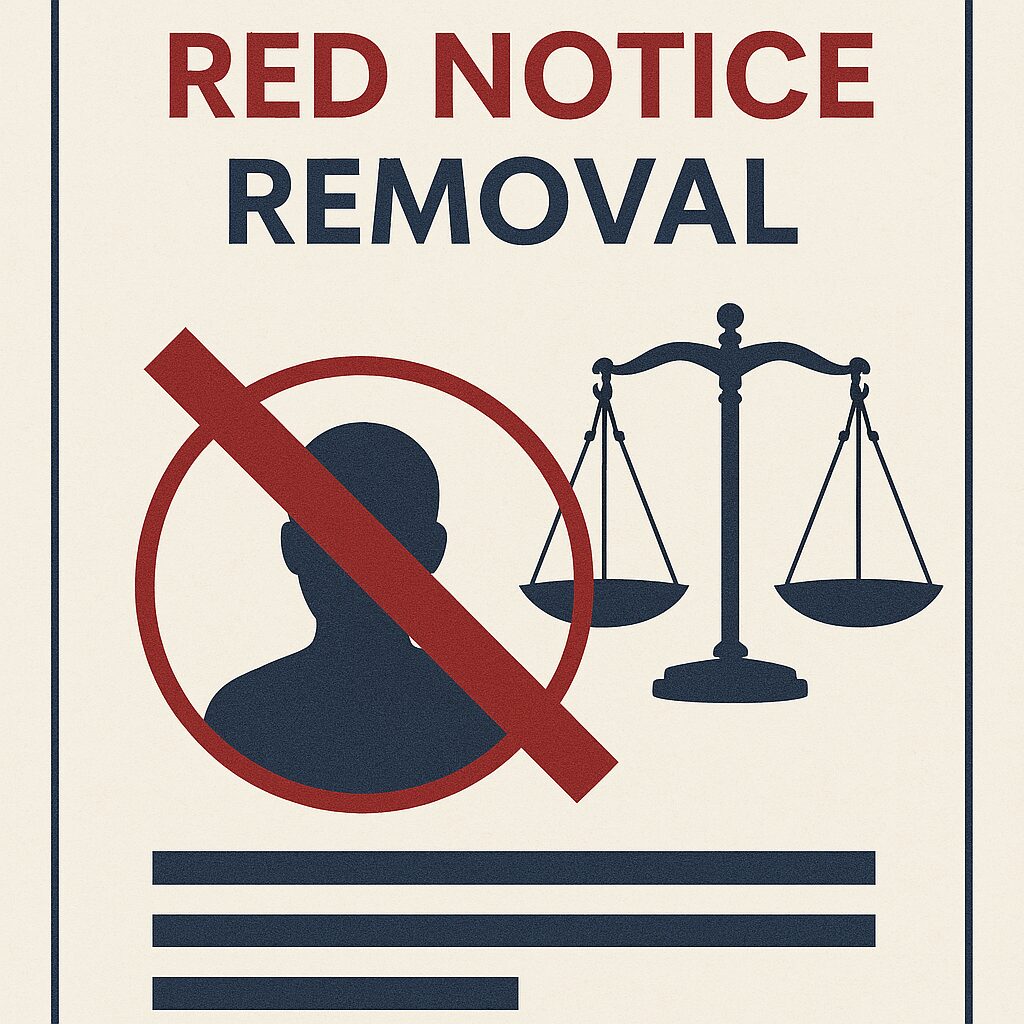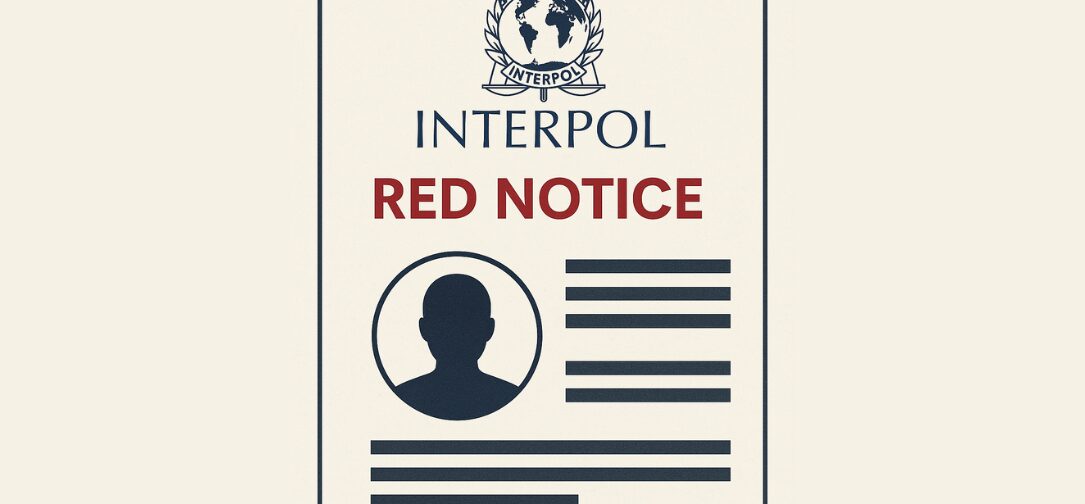An Interpol Red Notice is not an arrest warrant—but it can severely restrict a person’s freedom of movement, reputation, and access to international services. For individuals who discover they’re the subject of a Red Notice, the impact can be immediate and far-reaching. This guide explains what a Red Notice is, how it works, and what steps you can take to challenge or remove it.
What Is an Interpol Red Notice?
A Red Notice is a request issued by Interpol at the request of a member country, asking law enforcement worldwide to locate and provisionally arrest an individual pending extradition. It serves as a global alert, circulated among 195 countries, and is often based on national arrest warrants.
Red Notices are used in serious criminal investigations, including financial crimes, political offenses, or cross-border fraud. However, they can also be misused for political or personal retaliation—making it critical to examine the basis for each notice carefully.
How a Red Notice Affects You
Being subject to a Red Notice can lead to:
- Immediate arrest at border crossings or airports
- Freezing of bank accounts or visa denials
- Reputational damage, particularly in professional or business settings
In many cases, the notice becomes visible in international databases, affecting travel, immigration, and employment opportunities.
If you’ve received notification or suspect you’re the subject of a Red Notice, contacting experienced interpol lawyers is essential.
What Triggers a Red Notice?
A Red Notice begins with a request from a national law enforcement agency. This request must be supported by a domestic arrest warrant and submitted to Interpol for international circulation. Interpol does not investigate the validity of the charges or the fairness of the legal process in the requesting country, which allows room for politically motivated or unjustified notices.
Red Notices are often triggered by extradition requests when a country seeks to arrest someone abroad for prosecution. They may also stem from ongoing criminal investigations involving multiple jurisdictions, especially in cases of fraud, money laundering, or cybercrime.
Some individuals are unaware of the notice until they are detained at a border, denied a visa, or flagged during routine checks in international systems. This delayed discovery can complicate legal defense and increase the risk of arrest without prior warning.
How to Check and Respond to a Red Notice
Interpol does not publicly list all Red Notices. Some are confidential, making them harder to detect until enforcement occurs. However, a few steps can help:
What You Can Do:
- Request access to your Interpol file
Submit a request to the Commission for the Control of Files (CCF) to verify whether a Red Notice exists and review the data submitted by the requesting country. - Consult with specialized legal counsel
Work with experienced interpol lawyers who understand Interpol’s internal rules and can assess the legality of the notice. - File a request for correction or deletion
If the notice violates Interpol’s standards, submit a formal application to the CCF with legal arguments and supporting evidence. - Prepare a legal response to challenge the notice
Build a detailed case showing political motivation, due process violations, or lack of a valid arrest warrant to strengthen your red notice application.
You can begin with a formal red notice application to Interpol’s Commission for the Control of Files (CCF), requesting the removal or modification of the notice.
Grounds for Red Notice Removal
To remove a Red Notice, it must be shown that the request breaches Interpol’s Constitution or legal framework. Interpol rejects notices that are politically, racially, or religiously motivated, as these violate Article 3 of its Constitution. For example, cases involving political dissent, opposition figures, or journalists often fall into this category.
A notice may also be removed if it fails to meet basic due process standards—such as lack of fair trial guarantees, credible evidence, or a proper legal basis for prosecution. Interpol requires that any Red Notice be based on a valid and enforceable arrest warrant issued by a competent judicial authority. If such a warrant is missing or flawed, the notice is subject to deletion.
Supporting documents—like decisions from asylum authorities, rulings from international courts, or proof of political persecution—are critical in proving the abuse of the system and strengthening your red notice application.

Legal Representation Matters
Challenging a Red Notice requires deep understanding of Interpol’s internal procedures, international law, and political sensitivity. A qualified legal team ensures your submission meets all requirements and includes strong arguments and documentation.
Partnering with experienced interpol lawyers improves your chances of success and helps prevent further damage to your personal and professional life.
Final Thoughts
A Red Notice can disrupt every aspect of your life—from international travel to business and personal freedom. But it can be challenged. With prompt action, legal precision, and experienced support, individuals facing a Red Notice can defend their rights and restore their freedom.
For help with filing a red notice application or building a full legal defense, consult with expert interpol lawyers today.



































